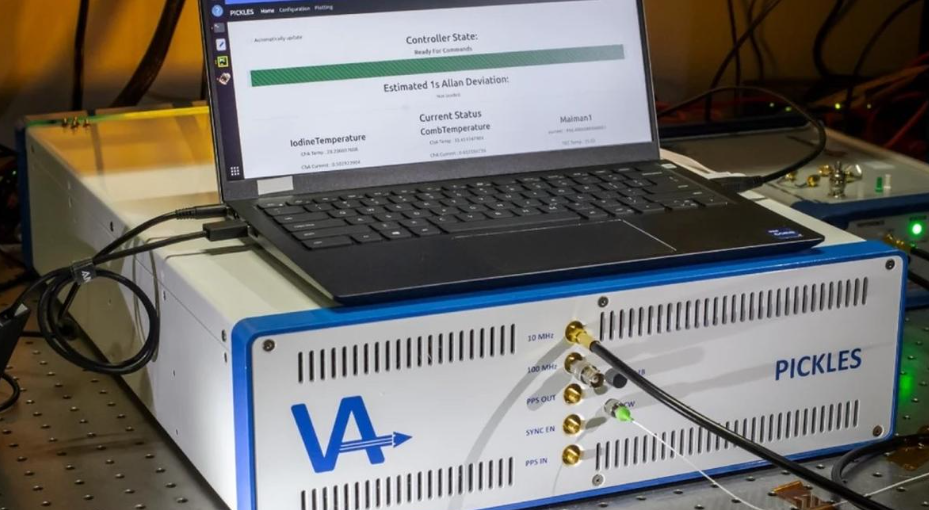Advancements in Portable Sea-Based Optical Atomic Clocks Revolutionize Timekeeping (GS Paper 3, Technology)

Introduction:
- Atomic clocks play a critical role in various applications, including navigation, military operations, and emergency situations, by providing precise timekeeping.
- Recent advancements in the field have led to the development of portable sea-based optical atomic clocks, offering enhanced accuracy and versatility compared to traditional counterparts.
Understanding Atomic Clocks:
- Atomic clocks, such as those utilizing caesium-133 (Cs-133) isotopes, operate by measuring microwave radiation emitted during atomic transitions.
- These devices provide exceptionally accurate timekeeping, with minimal time drift over extended periods.
- For example, caesium atomic clocks lose only one second every 1.4 million years, highlighting their reliability.
Innovation with Optical Atomic Clocks:
- Optical atomic clocks represent a significant leap forward in timekeeping accuracy. Unlike microwave-based clocks, optical atomic clocks utilize lasers to induce atomic transitions, typically employing elements like strontium or ytterbium.
- By operating at optical frequencies, these clocks can achieve higher precision, enabling more accurate time measurements with narrower linewidths.
Development of Portable Optical Atomic Clocks:
- A recent study published in Nature delves into the advancements that have facilitated the creation of portable optical atomic clocks suitable for sea-based applications.
- These innovative clocks utilize molecular iodine and feature miniature components, including spectrometers and laser systems, allowing for compact design and portability.
Performance and Stability at Sea:
- Initial tests conducted at sea have demonstrated the efficacy of portable optical atomic clocks in maritime environments.
- Despite their smaller size and portability, these clocks exhibit remarkable stability and accuracy, outperforming traditional timekeeping solutions for marine applications.
- They demonstrate minimal long-term drift and remain stable even in challenging conditions encountered at sea.
Implications and Future Prospects:
- The development of portable sea-based optical atomic clocks holds significant implications for maritime operations, offering enhanced timekeeping capabilities for navigation and synchronization.
- As these clocks continue to evolve, further improvements in accuracy and stability are anticipated, paving the way for their widespread adoption in various marine applications.
Conclusion:
- The emergence of portable sea-based optical atomic clocks represents a groundbreaking advancement in timekeeping technology, with far-reaching implications for maritime operations.
- By combining precision with portability, these innovative clocks offer a reliable solution for ensuring accurate timekeeping in challenging environments, furthering our ability to navigate and operate effectively at sea.


